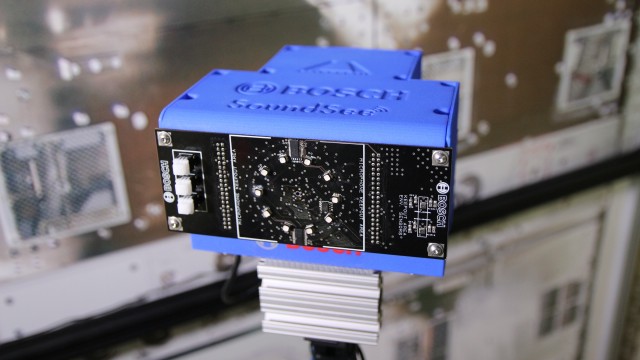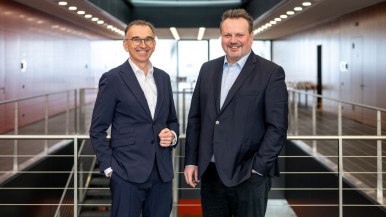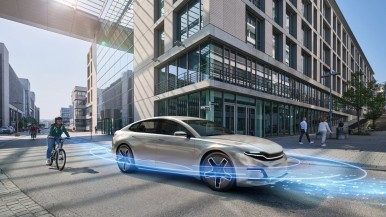Pittsburgh, USA – Bosch in North America and Astrobotic Technology Inc. today announced a research partnership to send experimental sensor technology to the International Space Station (ISS) as early as May 2019. Bosch’s SoundSee technology is a deep audio analytics capability that uses a custom array of microphones and machine learning to analyze information contained in emitted noises. SoundSee’s analytics will investigate whether audio data from equipment could be learned and understood using advanced software, such that it could be used to improve the operations of the ISS.
“Machines, such as motors and pumps, emit noise signatures while they operate,” said Dr. Samarjit Das, principal researcher and SoundSee project lead at Bosch’s Research and Technology Center in Pittsburgh. “Our SoundSee AI (artificial intelligence) algorithm uses machine learning to analyze these subtle acoustic clues and determine whether a machine, or even a single component of a machine, needs to be repaired or replaced.”
The SoundSee payload will ride on NASA’s Astrobee Robot, an autonomous free-flying vehicle capable of navigating throughout the ISS. The NASA Ames Research Center’s Astrobee team has also provided support for ground testing. “The support from NASA has been critical,” said Dr. Andrew Horchler, Astrobotic research scientist and director of Future Missions and Technology. “They have provided feedback and requirements that have helped us design our operational plans and understand the challenges of sending a hardware payload to the ISS.”
On the ISS, researchers will collect data and send it to Earth for Bosch to study. As research progresses, the team expects to update the software or adjust operational routines to improve data-collection results. “This data should allow us to gain insights into the state of the space station,” said Jon Macoskey, research engineer intern at Bosch. “Our long-term goal is to show that we can detect anomalies in the operation of the station and return that intelligence to crewmembers or ground control.”
The research has promise for numerous terrestrial applications and other crewed spacecraft, including missions to the Moon and Mars. “For some time, Bosch has been interested in using audio analytics to monitor critical machines and equipment, such as car engines or HVAC systems,” said Dr. Joseph Szurley, a Bosch research scientist on the project. “The ISS will allow us to study how these techniques can extend to even more challenging and unique environments.”
Astrobotic’s Future Missions and Technology team, a space robotics research group, is developing the flight version of the sensor, known as the SoundSee payload. The team will also lead ground testing and preparation for flight. “Conducting research in space, even when you have an asset like the ISS, is significantly more challenging than testing on the ground,” Horchler said. “As a space robotics company, we are able to help Bosch prepare for operating in this highly controlled space environment.”
The SoundSee project has been in development since the Center for the Advancement of Science in Space (CASIS) approved funding for launch costs and astronaut time aboard the space station earlier this year. CASIS is the organization tasked by NASA with managing the ISS U.S. National Laboratory. Recently, Bosch and Astrobotic researchers began testing engineering units of the SoundSee payload and added former ISS Commander Dr. Colin “Mike” Foale to the team.
“Since meeting the team at Astrobotic in Pittsburgh for the SoundSee preliminary design review, I am convinced that this novel, cutting-edge approach to using machine learning in space will not only have great benefits for troubleshooting ISS problems, but especially throughout industry on Earth,” Foale said.
“Commander Foale has provided invaluable operational insights into how the mission might operate within the ISS and helped us complete our preliminary design review this summer,” Bosch’s Das said. “Our test facility at Astrobotic is helping us validate the techniques that we will deploy on the ISS.”
The SoundSee payload will launch to the International Space Station as part of NASA’s Astrobee robot, and will be delivered on a future commercial resupply services mission.
“We have a dedicated team and clear path to flight,” Horchler said. “We couldn’t be more excited to work with Bosch, NASA and CASIS on this critical work.”





